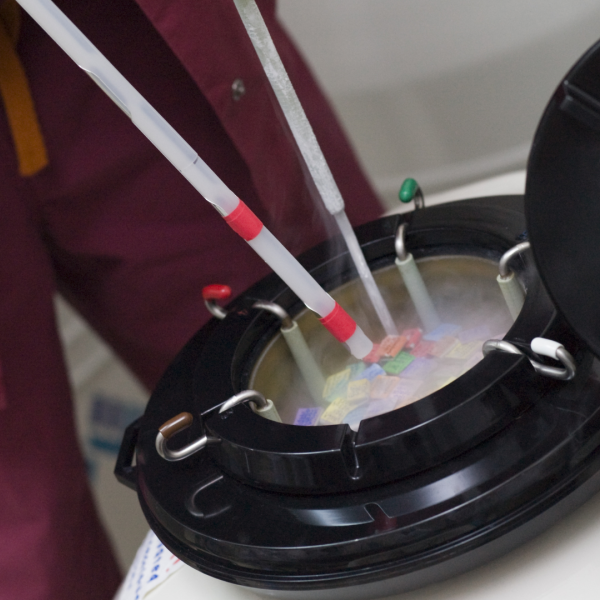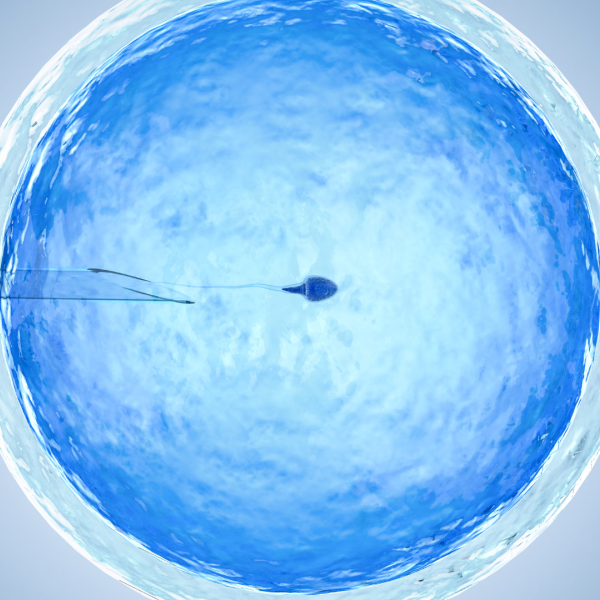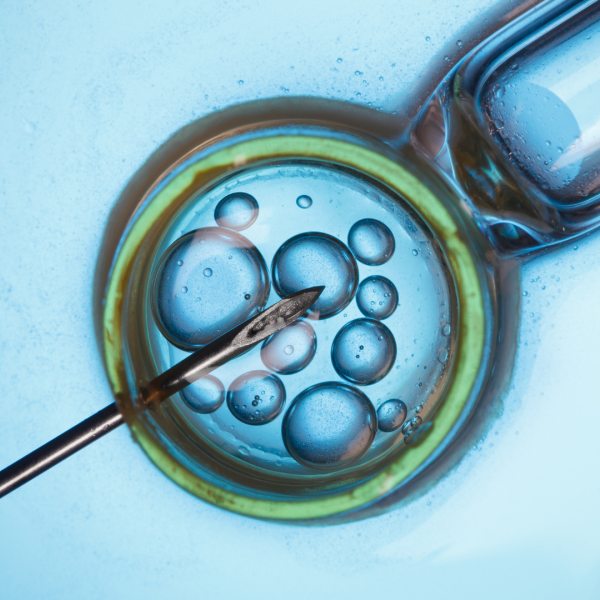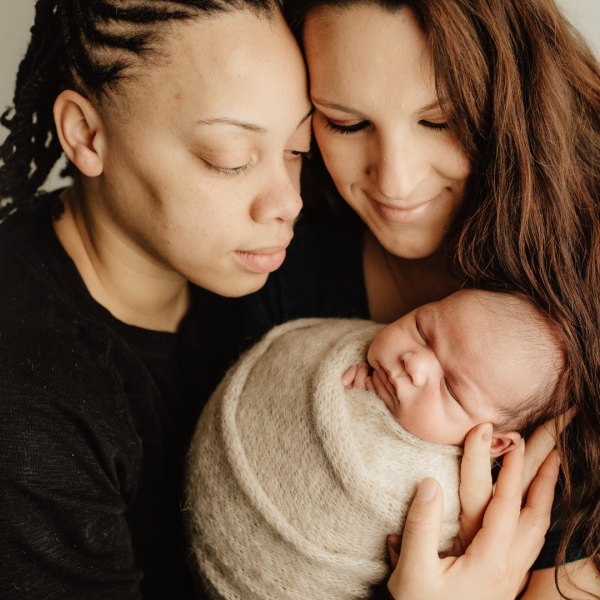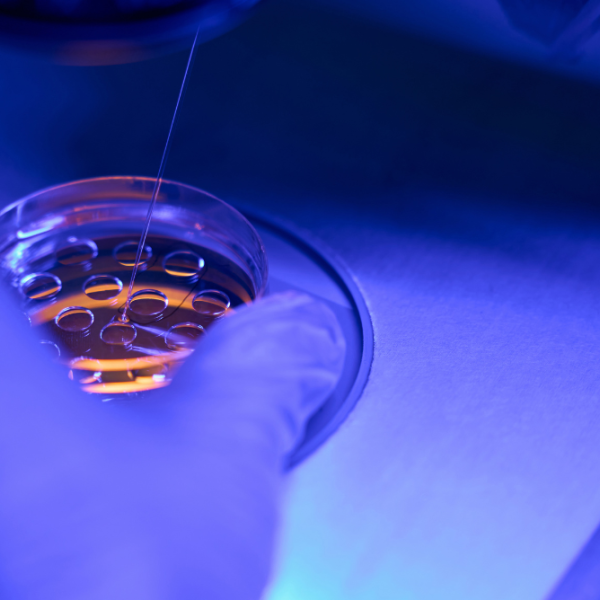Fertility Services
Artificial Insemination
The California Center for Reproductive Health and Dr. Mor have helped many women in the Los Angeles area overcome their infertility issues through a simple office based procedure called intrauterine insemination (IUI). Intrauterine insemination, otherwise known as artificial insemination
Egg Donation
Egg donation achieves some of the highest success rates among all available fertility treatments. For those patients with low ovarian reserve (diminished ovarian reserve), egg donation may be an appropriate treatment. With consistently high egg donation success rates year after year.
Egg Freezing
Egg freezing is the leading fertility preserving treatment. For women who wish to postpone family building without risking a loss of their eggs as they age, egg freezing is the treatment of choice. Through expert customized ovarian stimulation protocols.
Embryo Freezing
Many couples trying to get pregnant through in vitro fertilization (IVF) have their embryos frozen (cryopreserved) during the process. The indications for embryo freezing are multiple, from embryo banking for future use, to improving IVF success rates, to improved obstetrical outcomes. Doctor Mor’s IVF center has successfully performed this procedure with excellent results for many
Frozen Embryo Transfer
A frozen embryo transfer (FET) is the transfer of an embryo which has been previously frozen, and subsequently thawed, into the uterus. Traditionally, IVF has involved ovarian stimulation followed by egg retrieval and fertilization of harvested eggs, followed by a fresh embryo transfer (ET) of an embryo into the uterus within 5 days of the egg retrieval procedure, also known as IVF-ET.
Gender Selection
There are several indications for gender selection, such as helping to protect a couple’s baby from inheriting certain sex-linked genetic diseases and for family balancing purposes. Doctor Mor and his fertility team has been helping couples in the greater Los Angeles area successfully choose the sex of their baby through various specialized techniques. Gender
Gestational Surrogacy
Uterine factor is a well recognized cause of infertility. When a uterine problem is diagnosed to be severe and beyond repair (see below), couples may still conceive and have a child through gestational surrogacy. In gestational surrogacy, embryos are conceived with IVF using the intended parents’ eggs and sperm, and then transferred into the gestational carrier’s (gestational surrogate) uterus.
Intracytoplasmic Sperm Injection (ICSI)
In ICSI, a single sperm is injected into a harvested egg to artificially fertilize the egg. This technique, offered at the California Center of Reproductive Health’s state-of-the-art embryology laboratory in West Hollywood, has helped numerous couples build their families in the greater Los Angeles area and beyond. Intracytoplasmic Sperm Injection (ICSI) Intracytoplasmic sperm injection, or
IVF/Embryo Transfer
The physicians and staff at the California Center for Reproductive Health, with locations throughout the greater Los Angeles area, have helped numerous couples achieve their dream of having a baby through in vitro fertilization (IVF). Using the unique approach of creating customized IVF treatment protocols for each couple, has allowed Dr. Mor and CCRH to achieve consistently superior IVF success rates year after year.
IVF Clinic
The ability to afford infertility treatment should not be the biggest barrier to becoming a parent. After multiple failed attempts at more conservative treatments, patients are faced with a decision to pursue costly IVF treatment in their hopes to create a family. Unfortunately, most insurances do not cover IVF treatment. Our goal at the California Center for Reproductive Health is to provide comprehensive IVF treatment with excellent pregnancy success rates at a fraction of the cost.
IVF Failure
The In vitro fertilization process can be emotionally, physically, and mentally exhausting. You finally take the plunge and make the decision to pursue IVF to build your family, and then these incredible embryos you make don’t implant after the transfer. A failed embryo transfer can be devastating. Recurrent implantation failure (often defined as failure to achieve a clinical pregnancy after two or more embryo transfers of morphologically good embryos) is estimated to affect approximately 10% of women seeking IVF treatment.
LGBTQ Fertility
The California Center for Reproductive Health and Dr. Mor pride themselves on helping to build non-traditional families by offering the lesbian, gay, bisexual, and transgender (LGBT) community the entire variety of fertility treatment options. With offices located across the greater Los Angeles area and West Hollywood, CCRH celebrates every person’s wish to become a parent
Mini IVF Clinic
Oncofertility
California Center for Reproductive Health is committed to increasing awareness and optimizing accessibility to fertility preservation options for female patients diagnosed with cancer. Over 100,000 individuals less than 45 years of age are diagnosed with cancer annually in the United States. Cancer diagnosis is terrifying, but thankfully advancements in cancer therapies, particular chemotherapeutics, have led
PGT Specialist
Preimplantation genetic testing (PGT) is a laboratory technique that permits chromosomal and genetic analyses of embryos prior to embryo transfer. This allows for embryo transfer of only those embryos which are free of specific chromosomal abnormalities or genetic disorders.
IVF/EMBRYO FREEZE-ALL
In-vitro fertilization and embryo freeze-all (IVF-freeze-all) involves creating embryos in a standard IVF process but freezing of all embryos so that a fresh embryo transfer into the uterus, which is normally performed within five days of the egg retrieval, is avoided.
Our Locations
Choose your preferred location
FAQ
Reproductive endocrinology and Infertility is a sub-specialty of Obstetrics and Gynecology. In addition to managing medical and surgical treatment of disorders of the female reproductive tract, reproductive endocrinologist and infertility (REI) specialists undergo additional years of training to provide fertility treatments using assisted reproductive technology (ART) such as in vitro fertilization.
Reproductive endocrinologists receive board certification by the American Board of Obstetrics and Gynecology in both Obstetrics and Gynecology and Reproductive Endocrinology and Infertility.
In general, patients should consider consulting with an REI specialist after one year of trying unsuccessfully to achieve pregnancy. The chance of conceiving every month is around 20%, therefore after a full year of trying approximately 15% of couples will still not have achieved a pregnancy.
However, if a woman is over the age of 35 it would be reasonable to see a fertility specialist earlier, typically after 6 months of trying.
Other candidates to seek earlier treatment are women who have irregular menses, endometriosis, fibroids, polycystic ovary syndrome (PCOS), women who have had 2 or more miscarriages, or problems with the fallopian tubes (prior ectopic pregnancy).
Approximately 1/3 of the time cause for infertility is a female factor, 1/3 of the time a male factor, and the remaining 1/3 a couples’ factor.
At CCRH, we emphasize the importance of establishing a correct diagnosis. Both partners undergo a comprehensive evaluation including a medical history and physical exam.
Furthremore, the woman’s ovarian reserve is assessed with a pelvic ultrasound and a hormonal profile. A hysterosalpingogram (HSG) will confirm fallopian tube patency and the uterine cavity is free of intracavitary lesions. A semen analysis is also obtained to evaluate for concentration, motility, and morphology of the sperm.
Additional work up is then individualized to direct the best possible treatment option for each couple.
In vitro fertilization (IVF) is the process that involves fertilization of an egg outside of a woman’s body.
The process starts with fertility drugs prescribed to help stimulate egg development. In your natural cycle, your body is only able to grow one dominant egg, but with stimulation medication we can recruit multiple eggs to continue to grow. After about 8-10 days of stimulation, the eggs are surgically retrieved and then fertilized with sperm in a specialized laboratory. Fertilized eggs are then cultured under a strictly controlled environment within specialized incubators in the IVF laboratory for 3-5 days while they develop as embryos. Finally, embryos (or an embryo) are transferred into the uterine cavity for implantation.
Before deciding if IVF is the right choice, it’s important to sit down with an REI specialist to discuss available treatment options. For some people, other methods such as fertility drugs, intrauterine insemination (IUI) may be the best first choice treatment. At CCRH, we believe each individual couple is unique and not everyone needs IVF.
While not painful, the fertility medications may some side effects including headaches, hot flashes, mood swings, and bloating. The injection sites may also bruise.
Unfortunately, no. Many people think once they start IVF it’s a matter of time that they will be pregnant and have a baby. But according to national statistics per the Society of Assisted Reproduction (SART), on average 40% of assisted reproduction cycles achieve live births in women under age 35. The chances of success then continue to decrease with advancing age.
At CCRH, we employ only evidence-based interventions to ensure patient safety and optimal outcome. While we cannot guarantee a baby, we guarantee that you will receive the best, most advanced, personalized care to help you maximize your chance of a baby.
The average IVF success rate (success measured in live birth rate) using one’s own eggs begins to drop around age 35 and then rapidly after age 40. This is due to the decline in egg quantity and egg quality as a woman ages.
Our clinic’s success rate consistently beats the national average year after year.
Individual insurance plans often do not have any coverage for infertility treatments. If you have a group plan, you can call members services to see if they have coverage for infertility (including consultation/workup and IVF).
After your consultation with our REI specialist, one of our dedicated account managers with sit with you to go over the cost of treatment.




